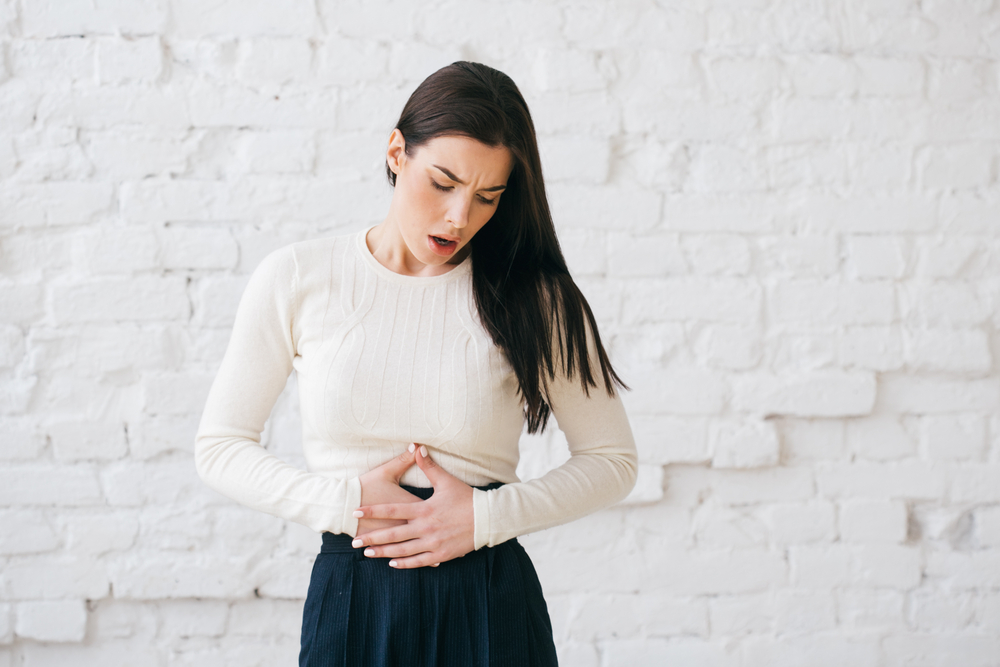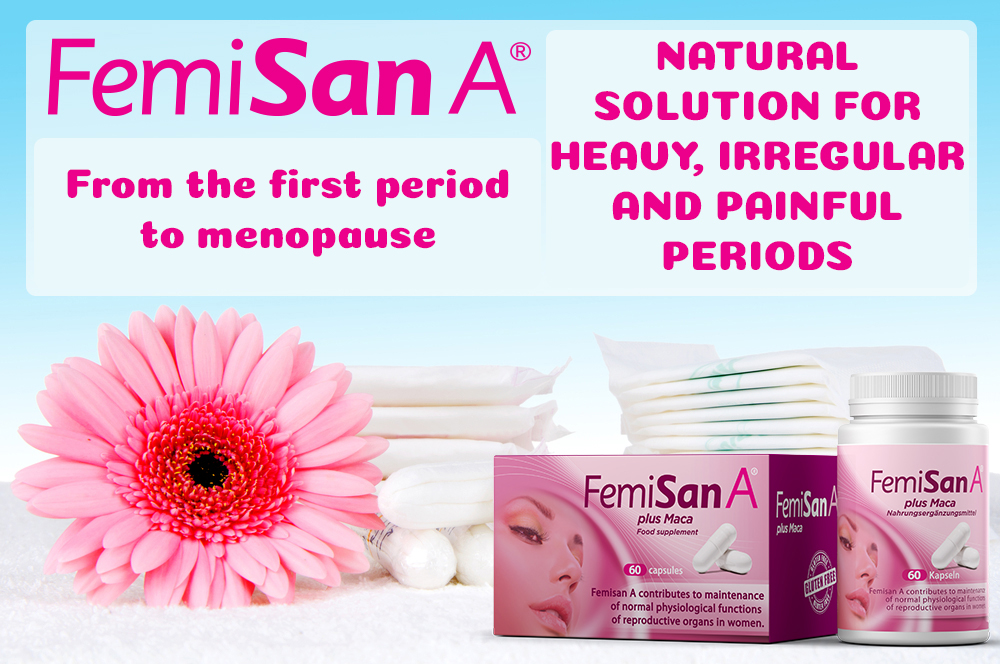Every woman roughly knows what “normal” bleeding during the menstrual cycle is – in her lifetime she goes through an average of about 400 cycles of monthly bleeding during which the inner lining of the uterus separates. For up to 30 percent of women, this bleeding is characterised as heavy periods. It is estimated that a woman loses about 35 ml of blood per month on average; anything over 80 ml is too much and can lead to anaemia, but also indicate that there is a disorder of the reproductive or endocrine system.
WHO IS PRONE TO MENORRHAGIA?
In girls, initial periods can be heavy for a simple reason: it is to do with the frequent absence of ovulation (anovulatory cycles). Still unbalanced hormones and an insufficiently established coupling of the hypothalamus, pituitary gland and ovaries cause menstruation, but this does not always lead to ovulation; this occasionally results in the formation of a stronger endometrium (uterine lining). When menstruation occurs and such endometrium separates, that inevitably leads to more bleeding. As time passes and hormones slowly come into balance, the bleeding stops being abundant. But while that condition persists, it is not at all pleasant, and sometimes it ends with an urgent trip to the emergency clinic or even hospitalisation.
In young women, ovulation should be already regular, so if there is frequent heavy bleeding in the twenties and thirties, one should definitely consult a gynaecologist, especially if periods are long and cause constant fatigue, dizziness, shortness of breath and insomnia. Usually, in such situations, the doctor will assess the general state of health, do a blood test, test for hormones and iron levels, because heavy periods can cause anaemia.
It is also necessary to determine the causes of menorrhagia. One of them can be intrauterine contraception (coil) in which menorrhagia is one of the most common side effects, regardless of the quality of the coil, its size or shape. In women who try to conceive during that period, occasional heavy bleeding may indicate anovulatory cycles and failure to conceive, and in such cases IVF is often recommended.

As they approach menopause, women may experience occasional or frequent heavy menstrual bleeding due to oestrogen fluctuations. Usually, menstruation is delayed or absent for a couple of months, so the one that comes next is too abundant. This problem is more pronounced in obese women, because fat deposits produce androstenedione, which is converted into oestrogen. Hormonal changes in this period can lead to the appearance of fibroids and polyps, which in about 40 per cent of women are the main cause of prolonged and heavy bleeding, along with endometriosis. Even in this period, menorrhagia can cause anaemia. Just a decade ago, most women of that age who suffered from heavy periods – as many as 60 percent of them – were referred for hysterectomy; in as many as 30 percent of them, the uterus was completely normal and healthy. Fortunately, today that percentage is much lower.
Another group of women is affected by heavy menstrual bleeding: women with bleeding disorders and those taking anticoagulant therapy – as many as 90 per cent of them. They have to be under the constant supervision of experts and do regular lab tests.
SYMPTOMS OF HEAVY PERIODS
Symptoms of menorrhagia, compared to normal periods, are its extended duration and abundance: if a period lasts more than seven days, if it is necessary to change the pad or tampon more frequently than every two hours and change it even at night, if coin-size clots are present, if we are unable to perform normal activities due to bleeding – this all points to menorrhagia. In addition to posing a health risk, heavy bleeding has a negative effect on a woman’s quality of life, so one should not hesitate to seek help.
A sudden heavy period can be frightening. However, there is no need to panic. In such a situation, it is best to write down the symptoms: the dates when the period starts and ends, how heavy it is (how many pads or tampons need to be changed in one day), whether there are any large clots, as well as any other changes we feel. If the next menstruation is again heavy, it would be good to consult a doctor. One of the signals that menstruation is not “normal” is the extent to which it prevents us from carrying out our daily activities, whether because of it we have to miss school or work. If it endangers our social life because we are ashamed of the amount of blood we lose, then we definitely need to seek professional help.

WHAT ARE THE CAUSES OF HEAVY PERIODS?
- Changing contraceptive methods, especially switching to an IUD, in most cases causes more heavy bleeding. Also, when we stop taking the contraceptive pill, the body needs some time to balance itself, so hormonal oscillations can cause heavier bleeding.
- Heavy periods can be a sign that we have a fibroid (benign tumour of the uterus) or a polyp on the uterus. These are benign growths on the endometrium, but they can cause increased bleeding, or press on internal organs and thus cause pain in the abdominal area.
- Endometriosis can cause an enlarged uterus and a thickened endometrium, which can be very painful and lead to serious bleeding.
- Pelvic inflammatory disease occurs due to bacterial infection of the uterus or fallopian tubes. In 90 per cent of cases, it is caused by risky sexual behaviour that leads to sexually transmitted diseases, such as chlamydia or gonorrhoea. In addition to heavy bleeding, it can lead to serious fertility problems.
- PCOS – polycystic ovary syndrome can be very painful, to the extent that it makes it impossible to perform daily activities, as well as cause heavy, long periods.
- Endometrial cancer can also cause heavy and irregular bleeding; fortunately, it happens very rarely.
- In rare cases, irregular and heavy menstruation can cause thyroid gland dysfunction (hypothyroidism), as well as blood clotting disorders.
WHAT IS THE BEST SOLUTION?
The usual solution that modern medicine offers for such problems is the contraceptive pill, but there is also a natural way: Femisan A – a formula that preserves women’s health and exists in two forms – as drops and capsules. Femisan A contains a combination of medicinal herbs that act as an astringent: it prevents profuse and prolonged bleeding. In addition, Femisan A is effective for ovarian cysts, uterine fibroids, menstrual disorders, painful menstruation, PMS, endometriosis, polycystic ovaries, fibrocystic changes in the breasts, cervical ulcers and female infertility. The biggest advantage of this completely natural preparation is that it balances the hormones and establishes regular and good ovulation. Femisan A can be used indefinitely, starting from the first day of the first period.

